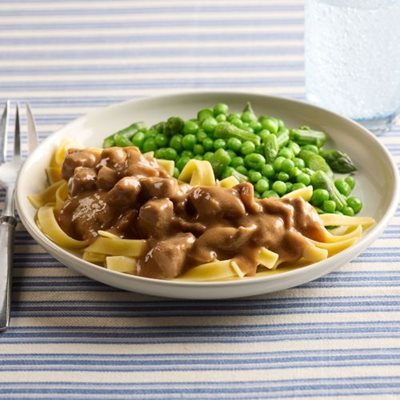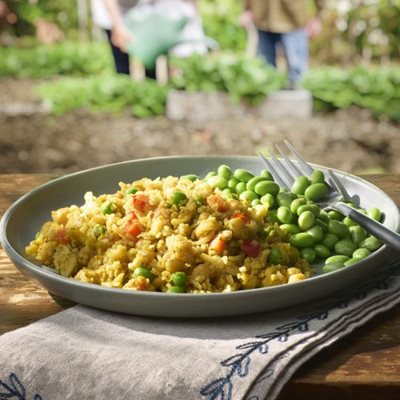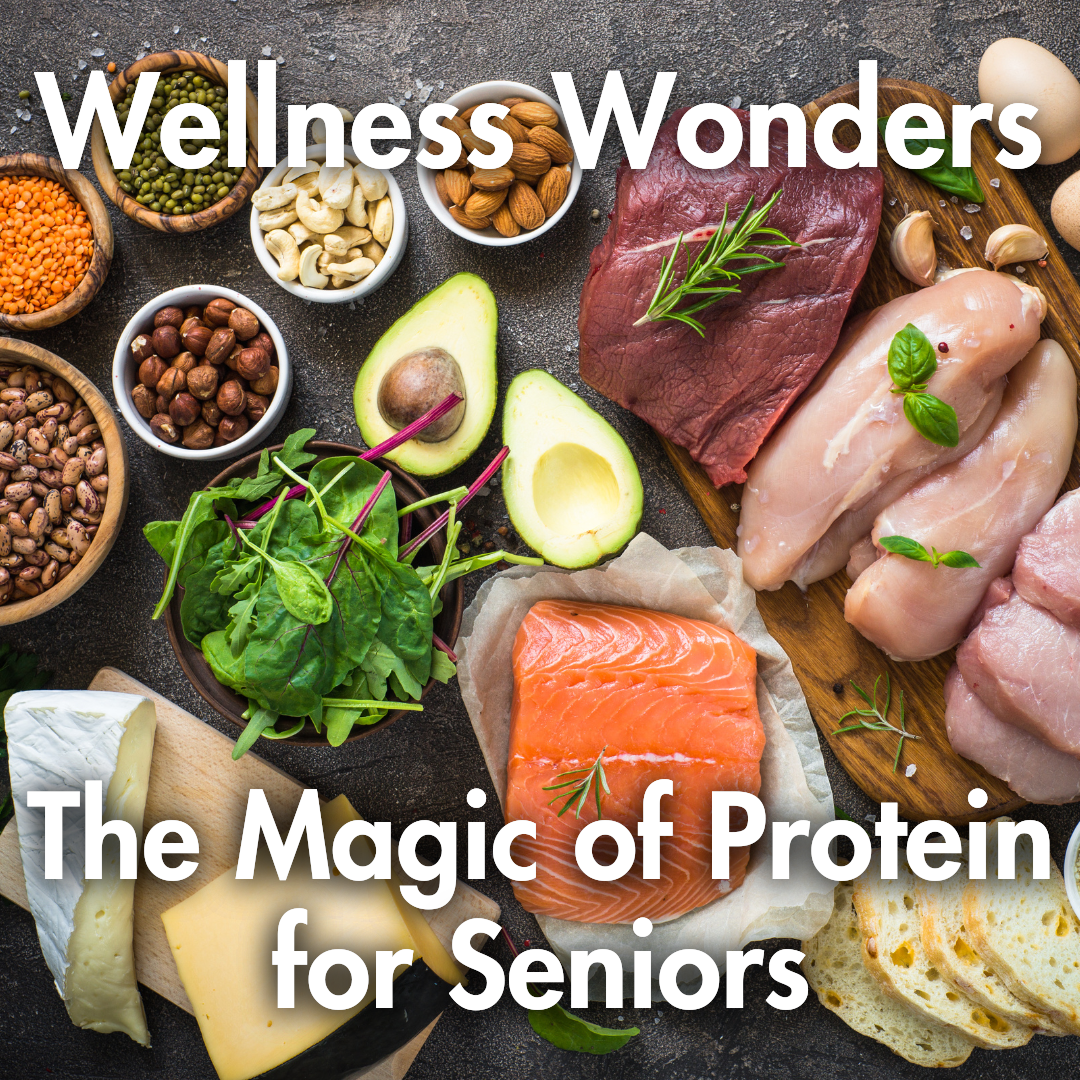.png?lang=en-CA)
As we age, prioritizing a diet rich in essential nutrients becomes even more important for staying healthy and maximizing quality of life. Of all the vitamins, minerals and amino acids that your body needs, few are as much of a nutrient powerhouse for senior wellness as protein.
Protein acts as a foundational building block for our bodies, and is essential for maintaining strength, mobility, and independence as we age. From repairing muscle mass to helping wounds heal, protein is a wellness wonder for seniors.
Let’s take a closer look at why protein is so important, how much you need, where to find it, and how Heart to Home Meals makes getting enough protein easier than ever for seniors.
The Importance of Protein: A Foundation for Senior Health
Protein is an amino acid, and one of three macronutrients, the other two being carbohydrates and fats. The ‘macro’ in the description refers to their importance to human life, because they provide life-giving calories. Whereas micronutrients like iron or vitamin C are important to our wellbeing, without macronutrients, we simply couldn’t survive long.
Protein as a macronutrient helps build and repair tissues in the body, such as muscle, skin, and internal organs. As we age, our bodies naturally lose muscle mass (a condition known as sarcopenia) which can lead to weakness, slower recovery from injury, and a higher risk of falls.
Getting adequate protein helps to:
-
Produce, maintain and repair muscle mass and tissue
-
Promote skin and wound healing
-
Support a healthy immune system
-
Regulate hunger and keep you feeling full longer, which may assist with maintaining a healthy weight.
Tip: Snacking on foods high in protein will help satiate your hunger better than eating a carb-loaded snack will, something of importance for diabetics who need to keep a closer eye on their blood sugar levels.
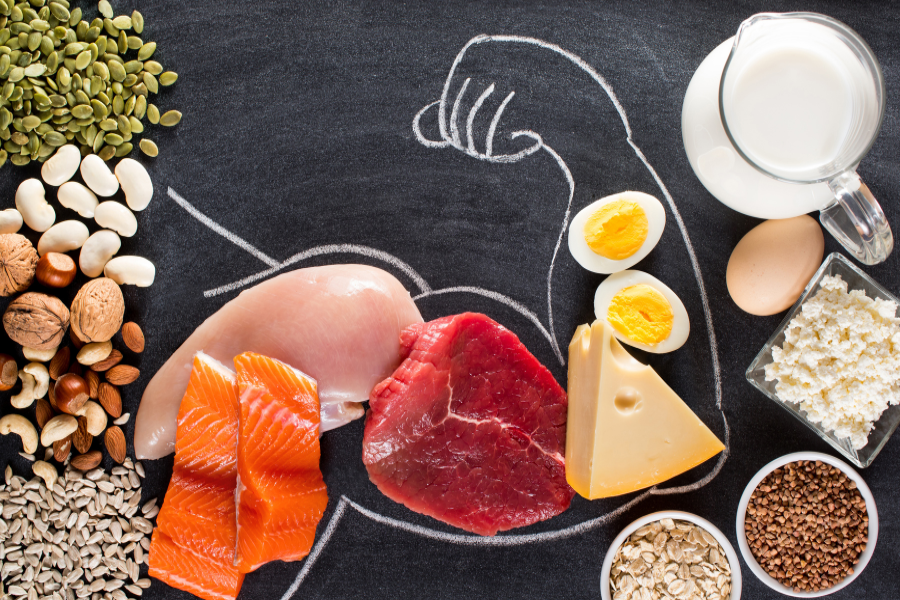
How Much Protein Do Seniors Need?
Generally, seniors should aim to consume at least 1 to 1.2 grams of protein for each kilogram of bodyweight per day. For many, this recommendation works out to around 50–60 grams of protein daily, however this number is dependent on weight, activity level, and health conditions. The number may be higher if recovering from surgery, dealing with illness, or trying to maintain higher muscle mass.
Always check with your healthcare professional to determine the right amount of protein for your individual needs.
Types of Protein: Animal and Plant Sources
Protein can come from both animal-based and plant-based sources, each with its own set of benefits:
Animal-Based Proteins
These sources contain all the essential amino acids your body needs:
-
Lean meats (chicken, turkey)
-
Red meats in moderation (beef, pork)
-
Fish and seafood
-
Eggs
-
Dairy (milk, cheese, yogurt)
These sources are often higher in protein per serving and are considered “complete” proteins.
Plant-Based Proteins
Ideal for those who prefer vegetarian or extra heart-healthy options:
-
Legumes (lentils, beans, chickpeas)
-
Tofu and tempeh
-
Quinoa
-
Nuts and seeds
-
Whole grains (brown rice, oats)
While not all plant proteins are complete on their own, combining different sources together (like beans and rice) can give you the full range of amino acids your body needs.
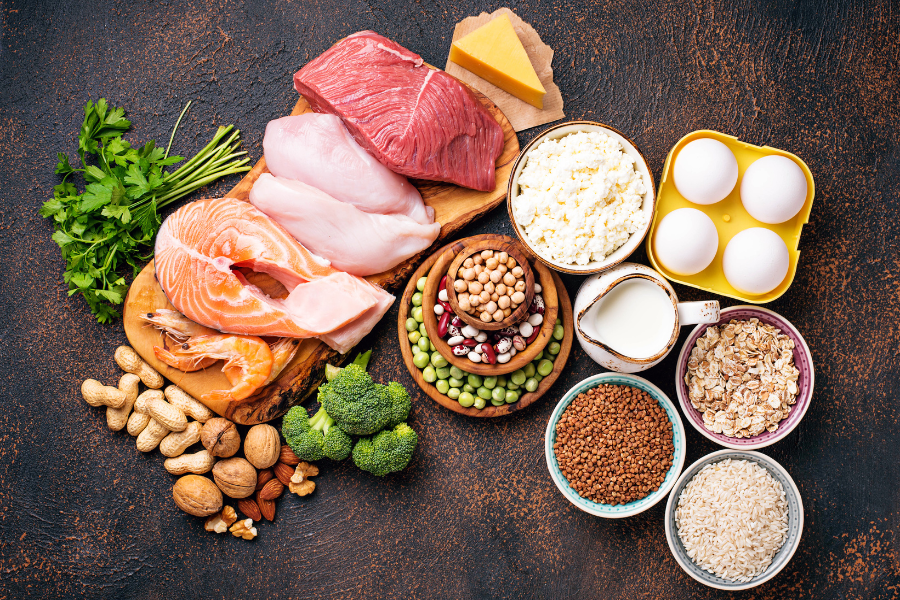.png?lang=en-CA)
Tips for Boosting Protein in Your Day
-
Start your morning with protein: Eggs, Greek yogurt, breakfast sausages, or nut butters can provide amazing, protein-packed starts to your day.
-
Snack smart: Reach for nuts, cheese, hummus, cottage cheese, or light meats that are higher in protein for a filling snack.
-
Balance every meal: Aim to include a source of protein at each meal – breakfast, lunch, and dinner – as well as lots of veggies and whole grains in your day for even more nutrients.
-
Don’t forget variety: Mix different animal and plant-based sources to reap the benefits of a full nutritional profile.
Heart to Home Meals Makes it Easy
Protein plays a critical role in helping seniors stay strong, healthy, and energized. From repairing muscles to promoting wound healing and regulating hunger, it’s a key ingredient in aging well.
At Heart to Home Meals, we understand the importance of protein for seniors, and we’ve designed many of our meals packed with protein to help you meet your needs easily and deliciously.
Look for our ProteinAssist® Diet Code, specially crafted meals that contain 20 grams or more protein per serving for you.
Ready to power up your plate? Try some of our favourites, such as:
-
Honey Garlic Chicken: contains 31g protein
-
Beef Stroganoff: contains 24g protein
-
Pork with Ginger Garlic Sauce: contains 26g protein
- Indian-Style Chickpeas with Curried Rice: contains 20g protein
.png?lang=en-CA)




